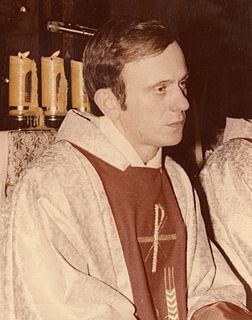
Jerzy Popiełuszko was a Polish Roman Catholic priest who became associated with the opposition Solidarity trade union in communist Poland. He was murdered in 1984 by three agents of Służba Bezpieczeństwa, who were shortly thereafter tried and convicted of the murder.

Lech Aleksander Kaczyński was a Polish lawyer and politician who served as the Mayor of Warsaw from 2002 until 2005, and as President of Poland from 2005 until his death in 2010. Before his tenure as president, he previously served as President of the Supreme Audit Office from 1992 to 1995 and later Minister of Justice and Public Prosecutor General in Jerzy Buzek's cabinet from 2000 until his dismissal in July 2001.

Jarosław Aleksander Kaczyński is a Polish politician who is currently serving as leader of the Law and Justice party, which he co-founded in 2001 with his twin brother, Lech Kaczyński, who served as president of Poland until his death in 2010.
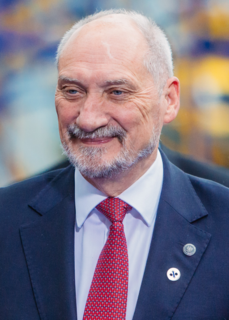
Antoni Macierewicz is a Polish politician and the former Minister of National Defence. He previously served as the Minister of Internal Affairs, Head of the Military Counterintelligence Service, and Minister of State in the Ministry of National Defence.

Military Information Services was a common name for the Polish military intelligence and counter-intelligence agency. The agency was created in 1990 after the Revolutions of 1989 ended the Communist regime as a merger between the former Communist agencies Internal Military Service and the Second Directorate of General Staff of the Polish Army. The combined agency was originally known as the Second Directorate for Intelligence and Counter-intelligence ; it was renamed to WSI in 1991. At first, all commanding and upper-level officers—and most of the employees—had direct personal and career links with the former Communist regimes of Poland and the Soviet Union.

Bogdan Michał Borusewicz was the Marshal in the Polish Senate from 20 October 2005 to 11 November 2015. Borusewicz was a democratic opposition activist under the Communist regime, a member of the Polish parliament (Sejm) for three terms and first Senate Marshal to serve two terms in this office. He was Acting President of Poland for a few hours in 2010.

Jan Józef Lipski was a Polish critic, literature historian, politician and freemason. As a soldier of the Home Army, he fought in the Warsaw Uprising. Editor of collected works by Jan Kasprowicz, Benedykt Chmielowski and Gabriela Zapolska.

A presidential election was held in Poland on 20 June 2010. As no candidate received a majority of votes in the first round, a second round was held on 4 July 2010. Bronisław Komorowski, the acting President of Poland and vice-chairman of the Civic Platform, defeated Jarosław Kaczyński, twin brother of recently deceased President Lech Kaczyński and chairman of Law and Justice. The global financial crisis, flooding in Poland and the Smolensk disaster were the main themes in the last months of the election campaign.

Ryszard Kowalczyk and his younger brother Jerzy Kowalczyk were Polish brothers who planted a bomb as a protest against communist rule in Poland.

Stanisław Włodzimierz Pyjas (1953–1977) was a Polish student of the Jagiellonian University in Kraków, member of the anticommunist student movements. He died on May 7, 1977 in Kraków. The exact circumstances of Pyjas’ death are still a mystery and his case, which is still disputed, shook public opinion in Poland. According to one scenario he was murdered and the killers, probably members of the communist Secret Services, arranged the death to look like an accident. The official scenario, however, states that his death occurred after he fell from the stairs while being drunk. In 2011 his body was examined, and the outcome states that it was the fall that caused his death and that he had not been beaten.
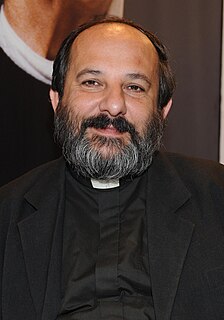
Tadeusz Bohdan Isakowicz-Zaleski is a Polish Roman Catholic and Armenian Catholic priest, author and activist. Born in 1956, in Kraków, Isakowicz-Zaleski was an activist of the anticommunist student opposition in Kraków in the late 1970s, became a Solidarity chaplain in Kraków's Nowa Huta district in the 1980s, and later an avid supporter of the lustration of the Polish Church. On 3 May 2006, he was awarded the Commander's Cross of the Order of Polonia Restituta, one of Poland's highest orders. Subsequently in 2007, he was awarded the Order of the Smile and Polish Ombudsmans Order of Paweł Włodkowic.

The 1988 Polish strikes were a massive wave of workers' strikes which broke out from 21 April, 1988 in the Polish People's Republic. The strikes, as well as street demonstrations, continued throughout spring and summer, ending in early September 1988. These actions shook the Communist regime of the country to such an extent that it was forced to begin talking about recognising Solidarity. As a result, later that year, the regime decided to negotiate with the opposition, which opened way for the 1989 Round Table Agreement. The second, much bigger wave of strikes surprised both the government, and top leaders of Solidarity, who were not expecting actions of such intensity. These strikes were mostly organized by local activists, who had no idea that their leaders from Warsaw had already started secret negotiations with the Communists.
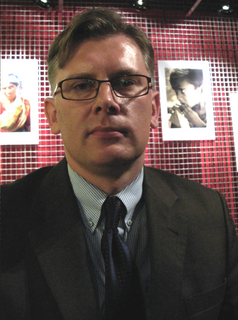
Sławomir Cenckiewicz is a Polish historian and journalist.
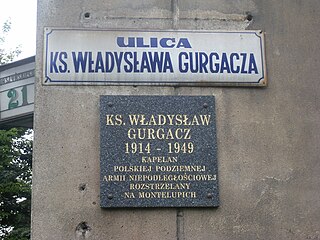
Władysław Gurgacz was a Polish Catholic priest, member of the Society of Jesus, and chaplain of the anti-communist underground.

Short Working Day is a Polish film directed by Krzysztof Kieślowski. Written by Kieślowski and Hanna Krall, the film is about the workers protests in June '76 in Radom, as seen from the perspective of the local Secretary of the Polish United Workers' Party. The film is based on real events, but the characters are fictional. Short Working Day was filmed in 1981, but had its official premiere on television only in 1996. During these 15 years, however, it was shown many times in film clubs and at special movie show-times.
Sylwester Zych was a Polish Catholic priest.

Janusz Krupski was a Polish historian, member of the democratic opposition to communist rule in Poland during the People's Republic of Poland and a government official.

Mirosław Chojecki is a Polish publisher and film producer. He was an activist in the democratic anti-communist opposition during the period of the People's Republic of Poland.
Fałszywka is a Polish socio-political term describing counterfeit top secret files and fake police reports produced by the Ministry of Public Security in the People's Republic of Poland. Their purpose was to undermine the popularity of prominent opponents of Polish United Workers' Party, mainly by attempting to ruin their good name as private individuals. Fałszywka were used from the beginning of the People's Republic against opponents of the Communist system. These included seemingly stolen or declassified revelations about opposition members working as alleged police informants under the Soviet system. Most notably, some have argued that an entire forged file of this sort was produced in the 1980s and then disseminated by the communist establishment about the leading dissident and future President of Poland Lech Wałęsa when he was nominated for the Nobel Peace Prize. Some politicians claim it was fabricated and then "leaked" to the media in an attempt to prevent Wałęsa from being awarded the Prize.
The dissident movement in the Polish People's Republic was a political movement in the Polish People's Republic whose aim was to change the political system from unitary Marxist–Leninist government imposed by the USSR to democratic form of government.



















